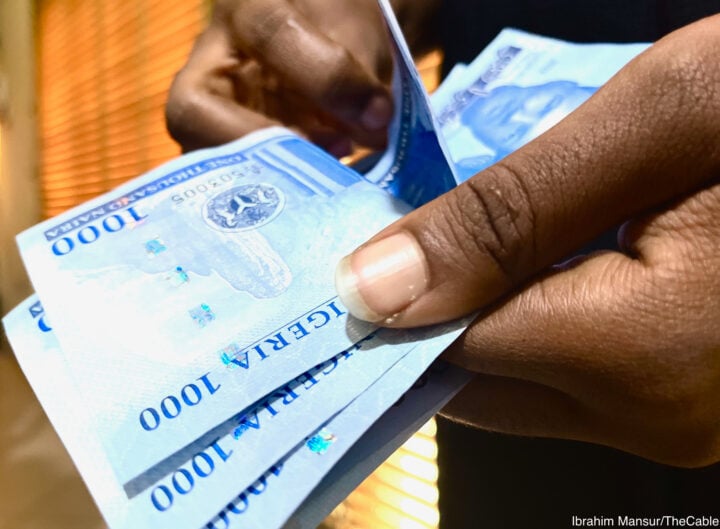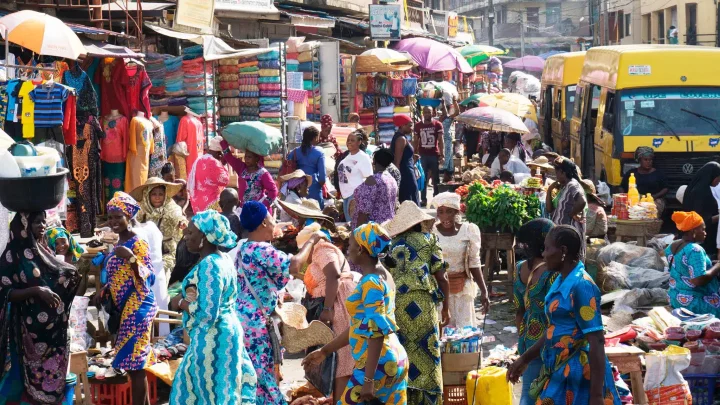BY BOLAJI AFOLABI
For democracy to thrive, various elements including opposition political parties, civil societies, faith and community-based organisations, the media, and citizens must play their respective roles as watchdogs of government in every way, where possible. Since Nigeria’s return to full-blown democracy in 1999, the fourth republic has witnessed the emergence and relevance of some individuals and groups who, at different times and in diverse ways, performed defining functions as checks to successive governments.
The likes of Olisa Agbakoba, SAN; Ayo Obe; Late Yinka Odumakin; Idiat Hassan; Ene Obi; Auwalu Rafsijani; Hussein Abdu; Clement Nwankwo; Kayode Ogundamisi; Jite Ogunye; SISLAC; SERAP; CDD; PLAC; PLAN; Action Aid; Save Nigeria Group as recognised and legitimate groups and activists have succeeded in monitoring different governments. As properly constituted entities whose primary agenda is national development, they have remained largely focused by giving knocks, offering back-pats, and proffering perspectives to governments where and when necessary.
In the past few years, there has been a preponderance of self-styled CSOs whose objectives and modus operandi are patently pecuniary-driven and attention-seeking. A situation like this calls to question the integrity and morality of “public policing” in democratic development. It is tragic that in most cases, these latter-day organisations are largely procured to “fight a cause” and do the bidding of certain paymasters without recourse to objectivity, sincerity of purpose and national interest. Sadly, these incongruous and derisive groups, which are usually managed by one man or few persons, are by their narrow-mindedness and selfish desires doing colossal damage to national growth and development.
Advertisement
A careful analysis of the activities of CSOs during military governments, and the early years of the fourth republic when juxtaposed with what is presently obtainable reveals a glaring decline. In terms of effectiveness and efficiency, these “new age” groups are shamelessly rubbishing the noble ideals of CSOs as enunciated by its progenitors such as Late Gani Fawehinmi; Late Chima Ubani; Late Beko Ransome-Kuti; Late Bala Usman and others.
Unknown to many Nigerians, in the past few days, there has been a coordinated effort by some faceless individuals and phoney CSOs to skew narratives about the injection of $600 million into Nigeria’s economy by A.P. Moller-Maersk, a global maritime and shipping conglomerate. The vicious and contrived controversy generated is patently unpatriotic, outrightly devilish, and ludicrously juvenile. Attempts to poo-pooh and demonise certain government officials notably Ajuri Ngelale, the presidential media adviser, and throw invectives at the audacious moves by the Tinubu administration in negotiating and sourcing foreign direct investment is uncalled for.
I have never met Ngelale. He was a familiar face on television before his current brief in the Tinubu scheme. I speak in this instance as a politically unaffiliated journalist and a dispassionate Nigerian. To rehash the catchphrase of former President Muhammadu Buhari in his early days, “I belong to no political party, but I belong to every well-intentioned plan to get Nigeria working.” One of the “fast food, pasta-like” CSOs procured for this insipid project has deployed vacuous tactics in its stain and spoil statement, calling for the disengagement of some government officials. The plot has exposed the intentions of these purveyors of falsehood, deceit and confusion. Having had years of close interaction with activists, research, investigation, and less sensationalism should ordinarily be germane to the principles and operations of CSOs. Unfortunately, these attributes have been jettisoned by the groups and individuals involved in this anti-Ngelale plot. Their approach has been at best mischievous preposterous, insensitive, and insouciant to national interest.
Advertisement
In their respective bids to present skewed and rancorous agglomeration of variegated misinformation with mischievous intents, they forgot to uphold the time-tested and serially proven operational guidelines anchored on fairness, firmness, and objectivity. They seem to have chosen the route of deliberate falsehood, targeted browbeating, and pillorying innuendos to whip up public sentiment against the government. They have most probably recouped to wrongful vilification and demagoguery of government officials to elicit a bandwagon effect among unsuspecting Nigerians. This may be a reflection of competency deficit, conceived shenanigans and intellectual indolence. After detailed and dispassionate reviews, assessment and distillation of the narratives and explanations by the government and its accusers, one can conclude that the “CSOs and individuals” are guilty of one or more of these conjectures.
From reports in the local and foreign media, President Bola Tinubu and Mr Robert Maersk Uggla, Chairman of A.P. Moller-Maersk, a Danish global provider of logistics and services in the maritime industry, had a meeting on the sidelines of the recently concluded World Economic Forum in Riyadh, Saudi Arabia. According to the presidency, at the end of deliberations, Maersk, whose company has been operating in Nigeria’s shipping and maritime sector for over three decades reiterated its commitment to ongoing investment drive by the government towards deepening growth and development. Maersk further reaffirmed the company’s resolve to expand its investment in Nigeria’s shipping industry which is expected to be mutually beneficial. However, in a bogus campaign to downplay this laudable development, some CSOs, social media influencers, and opinion moulders copiously referred to a “rebuttal” published in Lloyd List, one of the World’s oldest-running maritime journals. In the report, an unnamed person among other things denied knowledge of such extensive talk between Maersk and Nigeria; that the investment plans appear to be news to its officials.
Further extrapolation of the news report bandied by naysayers reveals yawning gaps and holes. That the celebrated online maritime publication quoted an unnamed and non-descriptive Maersk official casts doubt about the veracity of the report being circulated by mischievous elements. The report, contrary to the warped interpretation of critics emphasised that “discussions (between Maersk and the Nigerian government) were ongoing.” Reasons that the entire Maersk team was yet to get full disclosure were equally provided in the news report by the unnamed official, “….. maybe by next week, we would be properly briefed.” It should be noted that at the time naysayers activated their spin arsenals, Maersk had yet to deny or contradict the government’s position as released by Tinubu’s spokesman. Why “pick and choose” by these critics? Why not dwell on the entire news report and do a proper inquisition if any? Why the unnecessary dust and hullabaloo? Why the wrong, pervasive vilification of Tinubu’s spokesman?
Findings from further research and empirical studies reveal that in February 2024 in the course of an exploratory visit to Nigeria’s Minister of Industry, Trade and Investment, Dr Doris Uzoka-Anite, the A P. Maersk Terminal chief executive officer, Keith Svendsen, detailed the company’s $600 million investment commitment to Nigeria’s economy. Svendsen, who re-affirmed Maersk’s commitment to investing more in Nigeria, clearly outlined plans to allocate “an initial $100 million, with an additional half-billion dollars ($500 million) earmarked for port investments in Lagos, Nigeria.” Contrary to wrong insinuations, the Riyadh meeting was another opportunity for Maersk to re-confirm its investment interest in Nigeria’s maritime sector. These investments are expected to support modernisation and expansion of our ports; improve trade; reduce corruption; and boost efficiency. Maersk’s interest in the sector is buoyed by the government’s commitment, to complement ongoing $1 billion development of seaport construction and development across Nigeria’s eastern and western ports.
Advertisement
In a widely published statement by Maersk that did not only expose the despicable, hideous, and vengeful intentions of traducers but explicitly described the seriousness and benefits of the company’s investment in Nigeria, Svendsen confirmed that the company has concluded plans to invest over $500 million in the upgrades of Nigeria’s port facilities. He added, “I, earlier this year, publicly told about the proposal to invest more than $500 million that we have discussed with President Tinubu both in February and which we further elaborated in late April. We have intensified talks with the administration and port authority to make these plans concrete and I’m pleased with the significant progress made towards implementation.” According to Svendsen, the global logistics and provider has been a critical stakeholder in Nigeria’s maritime sector, “container terminals in Lagos, Apapa, and Onne, provision of high-quality and modern equipment, direct employment of about 2,500 people, and indirect employment of about 65,000 people.” Maersk in the words of Svendsen, “believes strongly in the prospects for the Nigeria economy, and the long-term opportunities that the current economic reforms and invitation for international investments will generate.”
Contrary to the negative narratives floating around, Maersk, while acknowledging Nigeria as the key market in Africa, and the company’s central role in trade between Nigeria and the rest of the world, is determined to consolidate its position as a leading force in Nigeria’s maritime sector, and desirous to upgrading it’s greenfield terminals in Lekki and Badagry as well as other ports infrastructure across the country. Svendsen declared that “we seek to do this under a long-term agreement with the government to support our ambition to continuously improve the import and especially export opportunities for the country, creating jobs and diversifying opportunities locally. For us, it is important that we not only operate highly efficient terminals but also that we play a role contributing to the development of the local communities and bring opportunities for growth and new prospects in Nigeria.”
For emphasis, Nigeria and Denmark have always had a robust, and mutually beneficial business relationship spanning four decades. This relationship has involved steady exchanges of goods and services, crude petroleum, concentrated milk, non-fillet frozen fish, margarine, transportation, solar power, renewable energy, biotechnology and a few others. Specifically, Maersk with over $2 billion in existing investments in Nigerian ports and other activities has shown that its involvement is not just fruitful but transcends to reputable and equitable partnerships with states including Ogun where a container terminal is under construction.
Finally, rather than resort to cheap, mindless, and fruitless public ridicule as well as unnecessary debilitating politicisation of any, and every intention and programme of government that will impact positively on the country and citizens, it is incumbent on “professional naysayers” to allow objectivity to prevail. In matters of development, banal reasoning, ethnic consideration, and tribal imputation should be subsumed under national interest and true nationhood. Multi-faceted buffeting, multi-pronged chicanery, and caustic denunciation of appointees and officials of government by hirelings and sourced raconteurs are not what Nigeria need now.
Advertisement
Given the multi-dimensional economic challenges and corrosive poverty that Nigerians are experiencing, every human capacity should be deployed towards supporting any development-driven initiative by the government. The comments of Maersk’s chairman at the Riyadh meeting with Tinubu will suffice, “with the growth potentials of the Nigerian economy, we are very eager to invest in it, and we will continue to dialogue with the relevant Nigerian authorities to explore further investment opportunities in an economy that has the capacity and potentials to be among the best in the world.”
Afolabi, a seasoned media practitioner, has served in the Office of Public Affairs in The Presidency and as a communications resource person in the House of Representatives, respectively.
Advertisement
Views expressed by contributors are strictly personal and not of TheCable.






